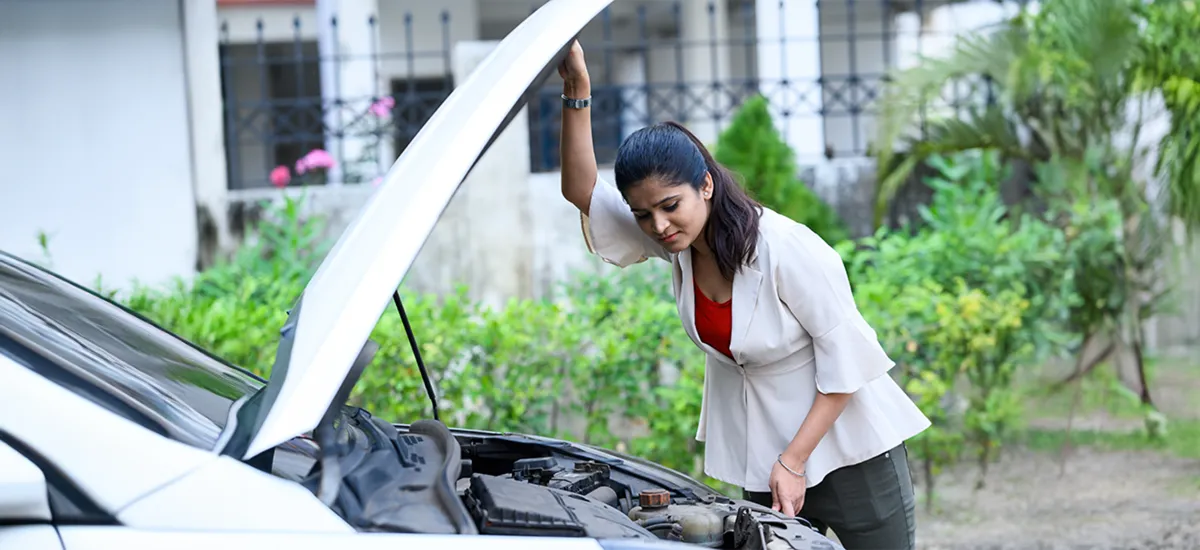In most parts of India, the monsoon brings joy and happiness as it provides much-needed relief from the scorching heat of the summer months. While abundant greenery and a sense of relief are everywhere, several rainy season diseases can surface during this season. Unless you have taken adequate safety precautions during the rainy season, you can get caught off-guard! What are the health tips for monsoon one should follow to stay healthy?
You must first have an active health insurance policy to cover eventualities. All leading insurers have health insurance plans for families or individuals, such as Generali Central's DIY health insurance plan.
Monsoon Diseases in India
The wet and humid weather conditions during the monsoon months provide a favourable environment for microbes to thrive and breed, causing several rainy season diseases that may be air or water-borne or result from mosquito bites.
Airborne diseases include the common cold, cough and flu, and influenza. These diseases are pretty infectious in nature and spread quickly to other persons through sneezing, coughing and close contact,
The common water-borne diseases are typhoid, cholera, jaundice / Hepatitis A, Gastro-Intestinal infections and leptospirosis.
Malaria, dengue, and chikungunya are common mosquito-borne rainy-season diseases.
So, how does one stay safe during the monsoon season, and what are the health tips for the rainy season?
Rainy Season Diseases and Prevention
a. Health tips for monsoon: Airborne diseases
Fever, cough, sore throat, running nose, and sneezing are the typical symptoms of the common cold and flu. In addition, the body may be weak and have difficulty swallowing food. If immunity is weak, there are chances of respiratory problems as well.
Precautions and health tips for the rainy season: airborne viral infections:
· Keeping away from an infected person
· Drinking warm water every 2 or 3 hours
· Washing your hands and feet after an outdoor visit
· In case of an infection, keeping your mouth covered while coughing is necessary
· Children, being more vulnerable, must stay away from an infected person
· Your house must remain well-ventilated, and staying in an air-conditioned environment should be avoided.
b. Health tips for monsoon: Water-borne diseases
Typhoid:
It is a major water-borne disease. The infection primarily enters the human body through contaminated food or water, and poor sanitation helps the bacteria multiply faster. Nausea, vomiting, high fever, headache, and stomach pain are the characteristics of this disease.
Cholera:
It is another critical water-borne infectious disease; improper sanitation and contaminated food are the major reasons for the infection.
Diarrhoea, vomiting, muscular cramps, and dehydration are the crucial symptoms of cholera.
Jaundice and Hepatitis-A:
Liver dysfunction, eyes turning yellowish, stomach pain, and fatigue indicate jaundice. Yellowish urine discharge and whitish stool are further symptoms of this critical disease. Infected food and water are the primary sources of this infection.
Other Gastro-intestinal (G-I) Diseases:
Consuming stale and contaminated food can lead to other infections, which are identified by stomach pain, diarrhoea, and occasional vomiting and nausea.
Leptospirosis:
The source of this infection is contact with dirty water through any open wound or cut in your body. The symptoms are fever, muscle pain, and brain membrane or spinal cord inflation. It may also affect the liver or kidneys.
Health tips for the rainy season and preventive measures: water-borne diseases:
· You have to be careful with outside food and water
· Avoid street food and pre-cut fruits and vegetables
· Wash vegetables and food thoroughly before consumption
· Drink boiled or filtered water
· Must wash hands frequently, especially before eating
· Maintain cleanliness around your home
· Get vaccinated against specific diseases, if recommended
c. Health tips for monsoon: Mosquito-borne diseases
Stagnant water is the main breeding ground of mosquitos; therefore, you have to make special efforts to keep the home surroundings (roof-tops, drainage channels, old flower pots, discarded tyres and the like) clean.
Malaria, dengue, and chikungunya are the main mosquito-borne diseases that surface during the rainy season.
Their initial symptoms are high fever, fatigue, and joint pains, which, unless treated immediately, can become critical.
Precautions and monsoon health tips: mosquito-borne diseases
· Using mosquito nets and repellents
· Regular spraying of insecticides within the house
· Community efforts to keep the neighbourhood clean- particularly insisting upon local municipal authorities to keep the area clean and free of stagnant water
d. Rainy season precautions for other diseases
Fungal infections also arise during the monsoon. Athlete's foot, ringworm, and nail infections are common examples of fungal infections.
Prevention and health tips for monsoon season
Athlete’s foot: Keep your feet dry; wear dry socks and choose shoes with breathable materials
Ringworm: You have to maintain clean personal hygiene with regular showers to remove sweat; wash your hands regularly; and avoid sharing items like towels and clothing.
Nail infections: Keep nails trimmed and clean, and wear protective footwear to avoid contact with contaminated water.
Monsoon precautions:
By following these healthy tips for the rainy season, you can stay healthy and enjoy the beauty of the monsoon. Remember to focus on a healthy diet to boost immunity as part of monsoon health tips. Having a comprehensive health insurance plan, like Generali Central’s Health Absolute or the Health Elite, will provide the necessary support in case the rainy season diseases catch you!






























